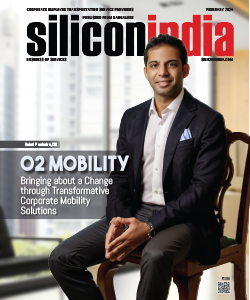Red Hat Becomes First $1 Billion Open Source Company
![]() Bangalore: With an annual fiscal growth of 25 percent in 2012, Red Hat becomes the first open source company to cross the magical $1 billion mark by the end of its fiscal year, that is Feb 29.
Bangalore: With an annual fiscal growth of 25 percent in 2012, Red Hat becomes the first open source company to cross the magical $1 billion mark by the end of its fiscal year, that is Feb 29.
‘An unbelievable achievement’- that is what Red Hat had to say about this milestone. Red Hat was founded in 1993, when open source was just near to the impossible. But after that, the tech world saw a rapid outburst of open source providers like Apache Web server and Linux. From a company that is, not more than a bookseller, Red Hat turned itself into a tricky business of software platform that big business will pay for.
The two factors that paved the path in Red Hat’s success are trust and support. Aspects like GPL open source code and the distribution of Red Hat’s codes to CentOS in 2004 are just some of the stories that boast of Red Hat’s real success. With constant threats from Red Hat’s bitter rival Oracle, it’s really appreciable that they still managed to climb to top of the ladder and tasted success.
Red Hat CEO Jim Whitehurst said "Sixty years after the dawn of the industrial revolution, we finally got standardized piece parts, which became critical in driving the next wave of innovation in the industrial revolution." He added "If nuts and bolts at the time had been patentable, if you had to buy your screwdriver from the same company from which you bought your screws, the jet engine would not exist today. The internal combustion engine wouldn't exist without standardized parts. The airplane wouldn't exist without the internal combustion engine."
Whitehurst added that Red Hat is thinking about expanding its shares over platforms other than its current industries. With heavy investments in sectors like financial services, government, and education, Whitehurst said that Red Hat is also thinking about expanding its shares in transportation, energy, health care and retail.
"The decisions that you make, that we all make, that IT in general makes over the next several years-are we going to have truly open architectures or will we just create the next Microsoft-is something that will be decided in the next several years," he says. "It's a battle we're going to have to continue to fight over the next several years."


